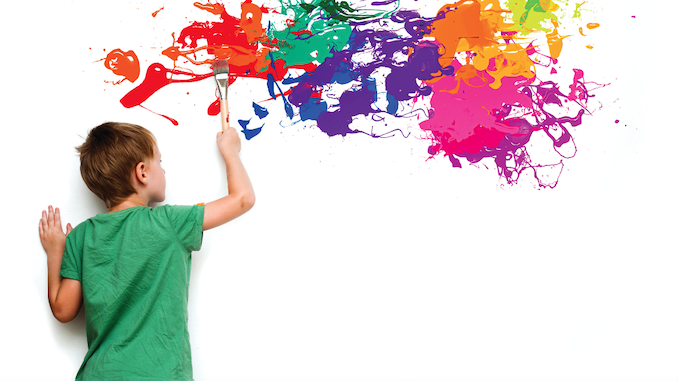
Published: August 29, 2024
By: Sandi Schwartz
How much time do your children spend dabbling in the arts – to freely express themselves in creative ways? Creativity is the ability to think in unusual, divergent ways. It does not only refer to artistic and musical expression; it is also essential for science, math, and social and emotional intelligence. Creativity has been shown to develop so many positive characteristics and to help children lead happy, successful lives. Unfortunately, creativity is becoming somewhat endangered in this generation because technology and busy schedules are taking priority over the arts. We can guide our children’s growth and impact their success by incorporating creativity into their daily routine.
Benefits of Creativity
When children grow up with opportunities to be creative, they can develop a number of key skills that will help them succeed throughout their lives.
Develop-Problem Solving Skills
The arts help children learn how to think in innovative ways when making decisions and solving problems. Many experts find that creativity actually rewires the brain to think ‘outside of the box,’ a very important skill for all aspects of life. When children are creative, they tap into intuition, imagination and playfulness, which help to solve complex problems. Without even realizing it, children working on creative projects are being challenged to solve problems like what colors to use, how to make a line and what size to make something. Researchers from Michigan State University have found a strong correlation between childhood engagement in the creative arts and measurable success later in life. Children who were exposed to a wide variety of arts and crafts were more likely to create unique inventions worthy of patents, come up with ideas good enough to start a new company or publish provocative papers on science and technology.
Express Emotions
Creativity also provides an outlet for children to express and cope with their emotions in a safe, calm way. Art offers a way to communicate ideas, feelings, and solutions without speaking or writing. When children have the capability to express emotions in this way, they can better manage challenges and issues like anger, anxiety and depression.
Improve Concentration
Creativity helps children learn to concentrate and focus more effectively on the task at hand, which is so important for studying in working in the future. Artists can become so absorbed in their project that they reach a state of flow or the sense of being completely engaged in an activity to the point of being in a near meditative state.
Persevere and Work Hard
Creativity helps children build patience and perseverance as they develop new skills and even face frustration and setbacks. Art allows them to try different approaches until they are satisfied with their creation. Perseverance is a critical skill to have in an increasingly competitive world, where people need to continually adapt to changes and develop new skills.
Achieve Academic Awards
Children who participate in arts-based programs are more successful academically, according to a Stanford University study. Some of their achievements included being more likely to win an academic award such as the honor roll, to receive a community service award and to participate in a math or science fair. These students also scored higher on the SAT.
Adopt a More Flexible and Worldly View
When children are exposed to the arts, they experience multiple cultures and ideas that they are not familiar with.
This helps them learn to think with an open mind and realize that there are multiple points of view. A study at the University of Kansas found that during a visit to an art museum, students displayed higher levels of social tolerance, exhibited more empathy and developed an interest in art and cultural institutions.
Build Confidence
Children who are encouraged to think creatively tend to have higher self-esteem and confidence. One reason for this is because children learn to feel pride in their original work. Also, many types of art forms, like drama and dance, require individuals to build these attributes in order to perform in front of an audience.
How To Raise More Creative Children
You may be surprised to find out that creativity can be learned. It is not necessarily a natural talent that we are born with. Actually, there is so much that we can do to expose our children to opportunities for creativity so they can develop these amazing skills.
